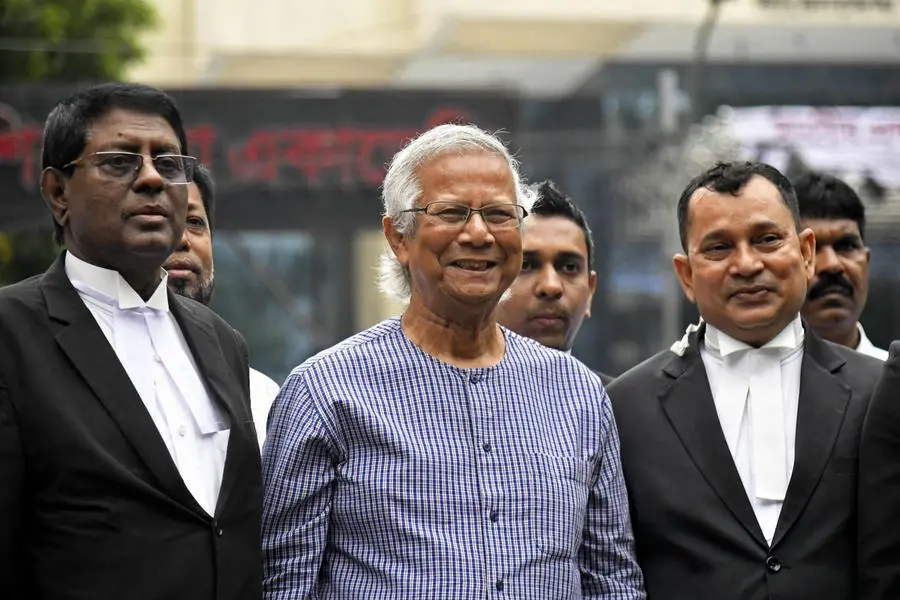PHOTO
Nobel peace laureate Muhammad Yunus appeared before Bangladesh's anti-graft watchdog Thursday over corruption charges that his lawyers said were part of a campaign of government harassment.
Yunus, 83, is credited with lifting millions out of poverty with his pioneering micro-credit bank, but he has fallen out with Prime Minister Sheikh Hasina, who has accused him of "sucking blood" from the poor.
He is facing around 175 separate criminal and labour tribunal cases related to social business firms he set up in Bangladesh aimed at creating jobs and bringing services to the poor.
"I have not committed any offence," Yunus told reporters after leaving the Anti-Corruption Commission in the capital Dhaka. "I am not scared."
Defence lawyer Abdullah al Mamun told reporters Yunus had to cut short his trip to United Nations headquarters in New York to attend the hearing.
Khaja Tanvir Ahmed, another lawyer for Yunus, said he was interrogated for more than an hour in the office.
"These cases are all part of the continuous harassment against Nobel laureate Professor Muhammad Yunus," he added.
Yunus and seven officials of Grameen Telecom, a social business firm he founded, are accused of money laundering and embezzling 250 million taka ($2.3 million), according to charges filed by the commission in May.
He faces up to 12 years in jail if convicted.
Another case against Yunus is currently at trial with the next hearing scheduled for October 11. His lawyers have insisted he is innocent of all charges against him.
In August, 160 global figures including former US president Barack Obama and ex-UN secretary-general Ban Ki-moon published a joint letter against the "continuous judicial harassment" of the micro-credit pioneer.
The signatories -- including more than 100 of his fellow Nobel laureates -- said they feared for "his safety and freedom".
Yunus was awarded the 2006 Nobel Peace Prize for his work promoting economic development.
He has been credited with helping eradicate extreme poverty in Bangladesh by offering microfinance loans to tens of millions of rural women through Grameen Bank, which he founded in the 1980s.
Bangladesh's anti-graft watchdog last year ordered a wide-ranging probe into firms that Yunus chairs.
Hasina has attacked him personally, blaming him for the World Bank pulling out from a bridge project near Dhaka that was mired in corruption allegations.
When the bridge finally opened last year, Hasina said Yunus should be "dipped in a river" for jeopardising its completion.
Critics accuse Bangladeshi courts of rubber-stamping decisions made by Hasina's government.
Rights activists, newspaper editors and opposition politicians have been sentenced in recent months ahead of a national election due in January.





















